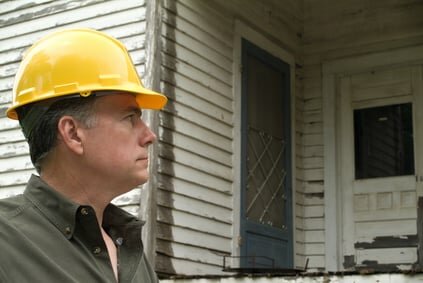Buyers get a lot of advice on how to get ready for a home inspection. But if you're the homeowner, how do you prepare for the inspector, so that your home puts its best foot forward?

Most offers to purchase will include a home inspection as a contingency, so the results of the inspection can have a major impact for you as the seller. Depending on what the inspector finds, the buyer may ask you to make repairs or may renegotiate the sale price. At worse, it's possible the inspector finds something so concerning that the buyer cancels the sale entirely, keeping the earnest money.
Although home inspections vary, you can expect the inspector to cover most of the following areas: the grounds, structure, exterior, interior rooms, kitchen and bathrooms. With the latter, you can expect the inspector to check venting and plumbing. Not all home inspectors are going to do an up-close check of the roof, but most will check for loose or faulty shingles or problems with fascia and flashing. They will also check for loose or missing gutters.
The inspector will deliver an unbiased assessment of your home's condition, but it still serves you well if you take a few steps to ensure the inspector can do his or her job.
1. Clean the clutter. If you haven't already decluttered, now is the time. The inspector doesn't want to feel like he or she is tripping over laundry baskets or toys just to try to gain access. It's never a bad idea to present a clean, uncluttered home when someone is assessing its condition, whether a prospective buyer, the inspector or appraiser.
2. Provide full access. Not only is it important that the inspector be able to gain entry through your front door, he or she must have full access to the property. That means gates and outbuildings should be unlocked. Nothing should block attic, crawlspace or basement access. If any sort of access is blocked, it can cause delays in the entire process.
3. Do any quick plumbing fixes. A running toilet is a common plumbing problem and even though it is a waste of water, homeowners often ignore it rather than taking a few minutes to fix it or to call a toilet repair and replacement services available in Edmonds, WA. With the inspector on the way now is the time to fix those running toilets, slow drains and other easy plumbing fix. Every repair you do ahead of the inspection is one less thing that ends up as a negative on the report.
4. Clear the perimeter. It is not uncommon for debris and discarded items to end up in the area around your home's foundation, especially on the sides and around the back. Make sure these areas are clear, including pruning of overgrown bushes, garbage cans or anything else obstructing the inspector's view.
5. Document past repairs. When you completed a sellers' disclosure, you made note of any repairs or system replacements you did and the year they were completed. Make a similar list for the inspector and if possible, gather copies of receipts for work that was done. You can also provide any warranties still in effect. All of this information gives the inspector a clearer picture of your home's condition.